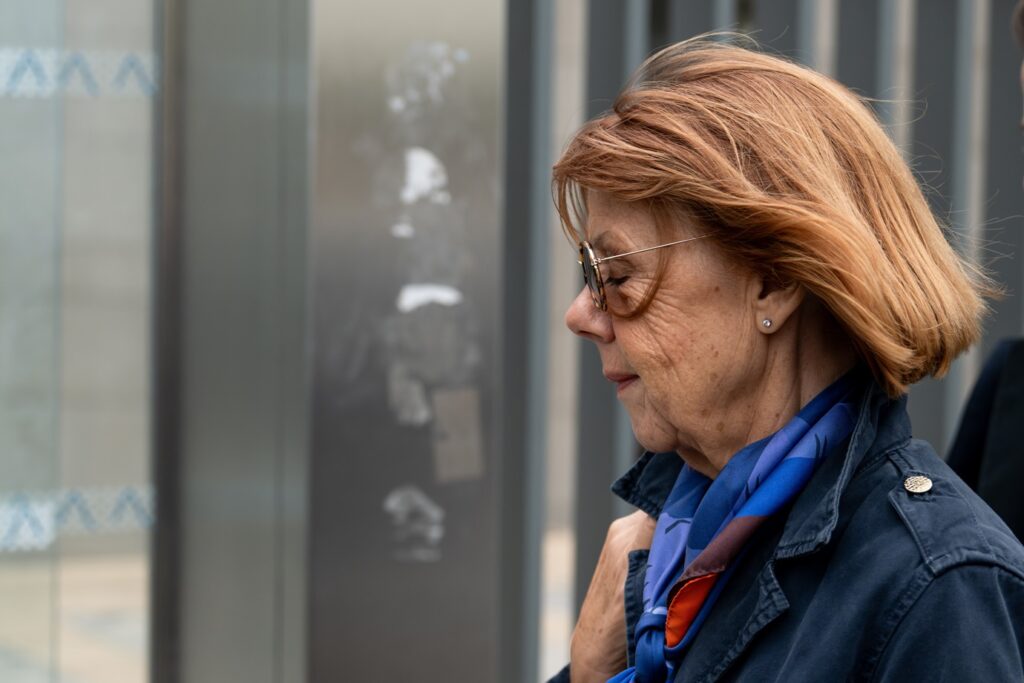The French government has announced new measures to combat violence against women, as the country reckons with a mass rape trial that has attracted global attention.
The new measures include raising awareness about the use of drugs to commit sexual abuse, as well as state-funded test kits, the ability to file complaints at more hospitals and increased emergency aid.
Speaking on Monday to mark the International Day for the Elimination of Violence against Women, French Prime Minister Michel Barnier said “there will not be any tolerance for violence against women” in the country, and that “more needs to be done”.
These words follow the high-profile Dominique Pélicot rape trial in France, where he has been accused of drugging his now-ex-wife Gisèle Pélicot to facilitate rape and sexual abuse by him and dozens of strangers over the course of nearly 10 years.
Dominique pleaded guilty to the charges, and has admitted that for years he mixed sedatives into her food and drink in order to facilitate the rape.
Many around the world have watched as Gisèle has spoken out on the abuse. Her courage and bravery to make the trial public have ignited critical conversations and awareness for change.
Prosecutors are demanding a maximum 20-year sentence for Dominique, who is on trial alongside 49 other men. The verdicts and sentences for the rape trial are expected at about 20 December.
Chemical submission
“These last months the French have been deeply moved by the incredible courage of Gisèle Pélicot,” said Barnier, adding that specific measures have been made to combat and raise awareness of the “yet little-known issue of chemical submission”.
Recommendations have been made that pharmacies should be allowed to issue a “morning-after” test kit via medical prescription to women who think they may have been drugged. The kit would contain urine sample bottles to be used as evidence.
The French national health insurance programme will be providing state-funded test kits in several regions on a trial basis.
Alongside this, a campaign to raise awareness of chemical submission will be spearheaded by the M’endors pas (Don’t sedate me) association co-founded by Gisèle Pelicot’s daughter and the helpline of France’s Reference centre for substance-facilitated aggression (Centre de référence sur les agressions facilitées par les substances) in partnership with the French Order of Pharmacists.
Increasing support
The French government has also announced the expansion of the system enabling female victims of violence to file a complaint in a hospital with an emergency or gynaecology department.
With this system, the hospital itself contacts the police of the public prosecutor’s office to lodge a complaint. And while it’s already available in many French hospitals, it will be extended to 377 facilities by the end of 2025.
There will be an increase in universal emergency aid as well, which is meant to help victims of domestic violence and support them when they leave their homes.
The budget for this aid will increase from €13 million in the 2024 finance bill (projet de loi sur les finances, or PLF) to €20 million in the 2025 PLF, according to the government.
Mine Günbay, director general of the national federation Solidarité Femmes (Women’s Solidarity), says that this is “a one-off helping hand” that doesn’t get women out of the violent situation. However, she welcomes the announcement of these measures, “which are nothing new to the associations, but which are more in line with what has been thought out and undertaken as part of the Grenelle [governmental-level consultations] and ministerial plans”.
The government is also calling for every French regional department to have a specialised women’s centre by the end of 2025.
The Secretary of State Salima Saa has said there’s a 10 per cent increase in the budget devoted to gender equality. However, advocates say this still falls short and are calling for €2.6 billion per year, rather than the promised €85.1 million.
“We, the feminist associations, are asking for [this total sum] to combat all forms of violence against women. This includes the issue of prevention from a young age, training for professionals, psycho-trauma centres and shelters for women and their children. The €85 million will not be enough. We need €2.6 billion to be able to really combat the problem,” said Günbay.
“We’ll only consider the fight against violence against women to be a major national cause once we have €2.6 billion designated to combat violence against women.”

